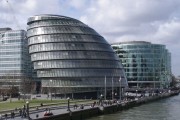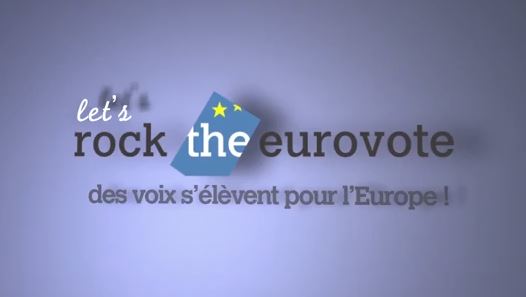On 5 May 2016 EU citizens living in the UK are entitled to vote in local elections for the following bodies
- National Assembly for Wales
- Northern Ireland Assembly
- Scottish Parliament
- Mayor of London
- London Assembly
- 100+ Local Authorities PLUS Direct Mayoral Elections in Bristol, Liverpool, Salford – see details below!
Last day to register to vote: 18 April 2016
As always, our recommendation is to register directly with your local council/authority. Some of you who are registered to vote will already have received a polling card or postal vote. If you think you are registered, check with the Council that you are indeed on the voting register, it is best to make sure before each election, as election registers need to be updated regularly and the system has changed in the last couple of years. Find the contact details for your local election authority here: http://www.aboutmyvote.co.uk/
EU citizens living and working in the UK unfortunately do not have a vote in the 23 June 2016 Leave/Remain EU Referendum, but they do have the democratic right to vote in local elections where they live. As active and involved members of their local communities we hope as many people as possible make sure they are on the electorial register.
Find out what the position of local candidates is on Brexit and set a sign through your vote in your local election on 5 May 2016!
Mayoral Elections outside London
In 2012 three UK cities elected a directly elected Mayor for the first time. These roles are up for election again in 2016.
- Liverpool – check the Liverpool City Council website for election info and registration
- Salford, Greater Manchester – check the Salford City Council website for election info and registration
- Bristol – check the Bristol City Council website for election info and registration
NOTE: in all three cities local councils will also be elected on 5 May 2016, EU citizens can vote in these elections.
Local Elections 2015
On 5 May 2015 over 100 local authorities and councils are also elected.
Technically, these are called Metropolitan Boroughs, District Councils and Unitary Authorities – the important thing is they are your local authorities and EU citizens who are permanent residents and on the electoral register have the right to vote in these elections to shape their communities.
Elections in 2016 are being held for the following local authorities
Metropolitan Boroughs
A third of council seats are up for election in 32 of 36 Metropolitan boroughs including Barnsley, Birmingham, Bolton, Bradford, Bury, Calderdale, Coventry, Dudley, Gateshead, Kirklees, Knowsley, Leeds, Liverpool, Manchester, Newcastle-upon-Tyne, North Tyneside, Oldham, Rochdale, Rotherham, St Helens, Salford, Sandwell, Sefton, Sheffield, Solihull, South Tyneside, Stockport, Sunderland, Tameside, Trafford, Wakefield, Walsall, Wigan, Wirral, Wolverhampton.
Unitary authorities
In three councils – Bristol, Peterborough, Warrington – all seats are up for election while 16 others have a third of seats up for election. You can vote in Blackburn with Darwen, Bristol, Derby, Halton, Hartlepool, Kingston-upon-Hull, Milton Keynes, North East Lincolnshire, Peterborough, Plymouth, Portsmouth, Reading, Slough, Southampton, Southend-on-Sea, Swindon, Thurrock, Warrington, Wokingham.
District Councils
12 district councils have all their seats up for election.
Seven have half of their seats up for grabs.
In a further 52 councils a third of seats are being elected.
District Council Elections are held in Adur, Amber Valley, Basildon, Basingstoke & Deane, Brentwood, Broxbourne, Burnley, Cambridge, Cannock Chase, Carlisle, Castle Point, Cheltenham, Cherwell, Chorley, Colchester, Craven, Crawley, Daventry, Eastleigh, Elmbridge, Epping Forest, Exeter, Fareham, Gloucester, Gosport, Great Yarmouth, Harlow, Harrogate, Hart, Hastings, Havant, Huntingdonshire, Hyndburn, Ipswich, Lincoln, Maidstone, Mole Valley, Newcastle-under-Lyme, North Hertfordshire, Norwich, Nuneaton & Bedworth, Oxford, Pendle, Preston, Redditch, Reigate & Banstead, Rochford, Rossendale, Rugby, Runnymede, Rushmoor, St Albans, South Cambridgeshire, South Lakeland, Stevenage, Stroud, Tamworth, Tandridge, Three Rivers, Tunbridge Wells, Watford,
Welwyn Hatfield, West Lancashire, West Oxfordshire, Weymouth & Portland, Winchester, Woking, Worcester, Worthing, Wyre Forest.
Check your local newspapers, radio and TV to check if you can participate in local elections in May 2016. To start with, Wikipedia also has a reasonably good list of all elections taking place locally in 2016.
Electing the Scottish Parliament, Welsh Assembly and Northern Ireland Assembly
EU citizens living in Scotland, Wales or Northern Ireland can vote in the elections for the Scottish Parliament. Register by contacting the Electoral Registration Officer for your local area, you can find their contact details by using the postcode search on the About my vote website.
Here are direct links to find the direct information about these elections:
The Assembly holds the Mayor and Mayoral advisers to account by publicly examining policies and programmes through committee meetings, plenary sessions, site visits and investigations. It consists of 25 members, of which 14 are elected by constituencies, the other 11 represent London overall. There’s a nice little video explaining what the London Assembly is, you can find out more about it and stay on top of ongoing work by checking out the London Assembly website. Again, a good list of 2016 candidates is on Wikipedia.
Since a significant percentage of Londoners are non-British EU citizens living and working in the capital, contributing significantly to the city’s international flair and success, we specifically urge European Londoners to participate in the election for the next London Mayor. You can check out our special resource collection for the election here, and find out more on the official page London Elects.
Last day to register to vote: 18 April 2016
Don’t forget: EU citizens have the right to vote in all elections which are categorized as local, so all the above listed elections are open for EU citizens to vote in. Make sure you are registed to vote!

 Non British EU-citizens living in London (EU citizens) can vote in the upcoming elections for London Mayor and for the London Assembly on 5 May 2016. Registration deadline is 18 April 2016. If you are eligible, do not wait for the deadline, register right now.
Non British EU-citizens living in London (EU citizens) can vote in the upcoming elections for London Mayor and for the London Assembly on 5 May 2016. Registration deadline is 18 April 2016. If you are eligible, do not wait for the deadline, register right now. On 23 June 2016 the United Kingdom will hold a referendum about whether it should remain a member of the European Union or leave the European Union. A potential ‘Brexit’ has been discussed for the last couple of years and Eurosceptics have campaigned more and more aggressively against EU citizens living and working in the UK and made them one of the main reasons why the UK should end its membership of the European Union.
On 23 June 2016 the United Kingdom will hold a referendum about whether it should remain a member of the European Union or leave the European Union. A potential ‘Brexit’ has been discussed for the last couple of years and Eurosceptics have campaigned more and more aggressively against EU citizens living and working in the UK and made them one of the main reasons why the UK should end its membership of the European Union.









